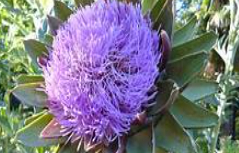Method Development for Simultaneous Quantification of Polyphenol Compounds in Artichoke (Cynara scolymus L.) Leaf Dry Extract by UPLC-PDA http://www.doi.org/10.26538/tjnpr/v7i9.22
Main Article Content
Abstract
Artichoke (Cynara scolymus L.) is renowned for its cholesterol-lowering, diuretic, liverprotective, and antioxidant attributes, primarily attributed to its abundance of caffeoylquinic acid derivatives and flavonoids. However, a deficiency remains in the quality control of bioactive ingredients within artichoke. This study's core objective was to establish and validate a ultrahigh-performance liquid chromatography-photodiode array detector (UPLC-PDA) method capable of quantifying 12 specific polyphenol compounds as 1-caffeoylquinic acid, 3- caffeoylquinic acid, chlorogenic acid or 5-caffeoylquinic acid, 4-caffeoylquinic acid, cynarine or 1,3-dicaffeoylquinic acid, 3,4-dicaffeoylquinic acid, 3,5-dicaffeoylquinic acid, 1,5- dicaffeoylquinic acid, 4,5-dicaffeoylquinic acid, caffeic acid, scolymoside and cynaroside present in both artichoke extracts and supplements. The method demonstrated commendable system suitability, specificity, and a linear range spanning 1-500 µg/mL (R2 = 0.99). Furthermore, we effectively applied this developed method to assess the polyphenol content in 19 distinct artichoke supplements. This concurrent quantification strategy offers a reliable avenue for evaluating the polyphenolic constituents across various artichoke preparations.
Downloads
Article Details

This work is licensed under a Creative Commons Attribution-NonCommercial-NoDerivatives 4.0 International License.
References
Ciancolini A, Alignan M, Pagnotta MA, Miquel J, Vilarem G, Crinò P. Morphological characterization, biomass and pharmaceutical compounds in Italian globe artichoke genotypes. Ind Crops Prod. 2013;49:326- 333. https://doi.org/10.1016/j.indcrop.2013.05.015.
Rangboo V, Noroozi M, Zavoshy R, Rezadoost SA, Mohammadpoorasl A. The effect of artichoke leaf extract on alanine aminotransferase and aspartate aminotransferase in the patients with nonalcoholic steatohepatitis. Int J Hepatol. 2016;2016:4030476. https://doi.org/10.1155/2016/4030476
Majnooni MB, Ataee M, Bahrami G, Heydarpour F, Aneva IY, Farzaei MH, Ahmadi-Juoibari T. The effects of coadministration of artichoke leaf extract supplementation with metformin and vitamin E in patients with nonalcoholic fatty liver disease: A randomized clinical trial. Phytother
Res. 2021;35(11):6324- 6334. https://doi.org/10.1002/ptr.7279
Kamel AM, Farag MA. Therapeutic potential of artichoke in the treatment of fatty liver: A systematic review and meta-analysis. J Med Food. 2022;25(10):931-942. doi: 10.1089/jmf.2022.0025.
Panahi Y, Kianpour P, Mohtashami R, Atkin SL, Butler AE, Jafari R, Badeli R, Sahebkar A. Efficacy of artichoke leaf extract in non-alcoholic fatty liver disease: A pilot double-blind randomized controlled trial. Phytother Res. 2018;32(7):1382-1387. https://doi.org/10.1002/ptr.6073
Bundy R, Walker AF, Middleton RW, Wallis C, Simpson HC. Artichoke leaf extract (Cynara scolymus) reduces plasma cholesterol in otherwise healthy hypercholesterolemic adults: a randomized, double blind placebo controlled trial. Phytomedicine. 2008;15(9):668- 75. https://doi.org/10.1016/j.phymed.2008.03.001
Englisch W, Beckers C, Unkauf M, Ruepp M, Zinserling V. Efficacy of Artichoke dry extract in patients with yperlipoproteinemia. Arzneimittelforschung. 2000;50(3):260-265. 10.1055/s-0031-1300196
Gatmiri SM, Khadem E, Fakhrian T, Kamalinejad M, Hosseini H, Ghorat F, Naderi N. The effect of artichoke leaf extract supplementation on lipid profile of chronic kidney disease patients; a double-blind, randomized clinical trial. J Renal Inj Prev. 2016;8(3);225-229. 10.15171/jrip.2019.42
Rondanelli M, Giacosa A, Opizzi A, Faliva MA, Sala P, Perna S, Riva A, Morazzoni P, Bombardelli E. Beneficial effects of artichoke leaf extract supplementation on increasing HDL-cholesterol in subjects with primary mild hypercholesterolaemia: a double-blind, randomized, placebo-controlled trial. Int J Food Sci Nutr. 2013;64(1):7- 15. https://doi.org/10.3109/09637486.2012.700920
Shahinfar H, Bazshahi E, Amini MR, Payandeh N, Pourreza S, Noruzi Z, Shab-Bidar S. Effects of artichoke leaf extract supplementation or artichoke juice consumption on lipid profile: A systematic review and dose-response metaanalysis of randomized controlled trials. Phytother Res.2021;35(12):6607-6623. https://doi.org/10.1002/ptr.7247
Walker AF, Middleton RW, Petrowicz O. Artichoke leaf extract reduces symptoms of irritable bowel syndrome in a post-marketing surveillance study. Phytother Res. 2001;15(1):58-61. https://doi.org/10.1002/1099- 1573(200102)15:1<58::AID-PTR805>3.0.CO;2-R
Holtmann G, Adam B, Haag S, Collet W, Grünewald E, Windeck T. Efficacy of artichoke leaf extract in the treatment of patients with functional dyspepsia: a six-week placebo-controlled, double-blind, multicentre trial. Aliment Pharmacol Ther. 2003;18(11-12):1099-1105. https://doi.org/10.1046/j.1365-2036.2003.01767.x
Ekin HN, Orhan DD. Herbal treatment for irritable bowel syndrome. Herbs, Spices, and Medicinal Plants for Human Gastrointestinal Disorders: Health Benefits and Safety, 2022;171-192.
Yang M, Ma Y, Wang Z, Khan A, Zhou W, Zhao T, Cai S. Phenolic constituents, antioxidant and cytoprotective activities of crude extract and fractions from cultivated artichoke inflorescence. Ind Crops Prod. 2020;143:111433. https://doi.org/10.1016/j.indcrop.2019.05.082
El Senousy AS, Farag MA, Al-Mahdy DA, Wessjohann LA. Developmental changes in leaf phenolics composition from three artichoke cvs. (Cynara scolymus) as determined via UHPLC-MS and chemometrics. Phytochemistry. 2014;108:67-76. doi: 10.1016/j.phytochem.2014.09.004.
Rocchetti G, Lucini L, Corrado G, Colla G, Cardarelli M, Pascale S, Rouphael Y. Phytochemical profile, mineral content, and bioactive compounds in leaves of seedpropagated artichoke hybrid cultivars. Molecules. 2020;25(17):3795. doi: 10.3390/molecules25173795.
Panizzi L, Scarpati ML. Constitution of cynarine, the active principle of the artichoke. Nature. 1954;174(4440):1062. https://doi.org/10.1038/1741062a0
Gostin AI, Waisundara V Y. Edible flowers as functional food: A review on artichoke (Cynara cardunculus L.). Trends Food Sci Tech. 2019;86:381-391. https://doi.org/10.1016/j.tifs.2019.02.015
Nations, FAOSTAT (2018) Food and Agriculture Organization of the United, "Artichoke" Link and Accessed
Chi VV. (2012) Từ Điển Cây Thuốc Việt Nam, Nhà xuấtbản y học, 1.
Schütz K, Kammerer D, Carle R, Schieber A. Identification and quantification of caffeoylquinic acids and flavonoids from artichoke (Cynara scolymus L.) heads, juice, and pomace by HPLC-DAD-ESI/MS(n). J Agric Food Chem. 2004;52(13):4090-6. https://doi.org/10.1021/jf049625x
Schütz K, Muks E, Carle R, Schieber A. Quantitative determination of phenolic compounds in artichoke-based dietary supplements and pharmaceuticals by highperformance liquid chromatography. J Agric Food Chem. 2006;54(23):8812-8817. https://doi.org/10.1021/jf062009b
de Assis Carneiro A, de Barros YY, de Freitas MM, Simeoni LA, Magalhaes PO Silveira D, Fonseca-BazzoYM. Identification and quantification of caffeoylquinic acid derivatives in Cynara scolymus L. tablets and capsules. Af J Pharm Pharmacol. 2017;11(6):94-102. https://doi.org/10.5897/AJPP2016.4718
Mena-García A, Ruiz-Matute AI, Soria AC, Sanz ML. A multi-analytical strategy for evaluation of quality and authenticity of artichoke food supplements for overweight control. J Chromatogr A. 2021;1647:462102. https://doi.org/10.1016/j.chroma.2021.4 62102
Singh J. International conference on harmonization of technical requirements for registration of pharmaceuticals for human use. J Pharmacol Pharmacother. 2015;6(3):185- 187. doi: 10.4103/0976-500X.162004


